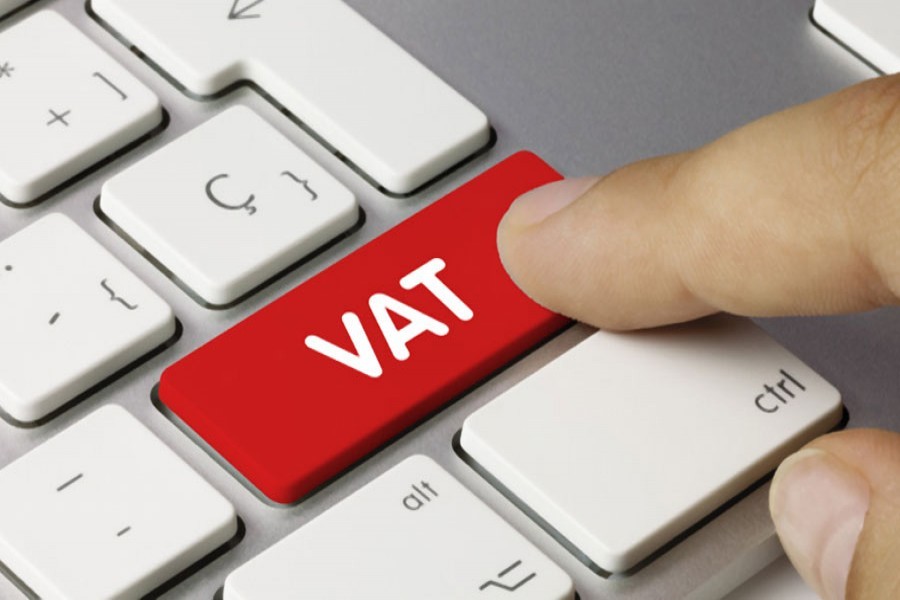The digitised system of value-added tax (VAT) now operates in a state vulnerable towards collection fiasco for a lack of proper maintenance for unavailability of funds, sources say.
Many of its backup systems already went out of order while other services were facing disruptions, affecting smooth operation of the countrywide online VAT-collection system, they add.
Officials expressed the fear that unless necessary measures were taken immediately, the automated system could collapse and the VAT- collection target for the current fiscal year would unlikely be achieved.
The Integrated VAT Administration System (IVAS) was developed under a VAT Online Project (VOP) costing Tk 6.90 billion jointly funded by the World Bank and the government.
Under the system, the National Board of Revenue (NBR) has enforced the measures of the new VAT and Supplementary Duty Act-2012 across the country.
Officials said five major machines, including few backup systems of the digitised VAT administration, had already turned inoperative.
The maintenance officials said they were compelled to discontinue many of the services including authentication SMS to the businesses as no funds are available to purchase the service.
They said despite several requests to the NBR and the Internal Resources Division (IRD), no money or manpower had so far been allocated for keeping the automated system operational.
Sources said despite the Ministry of Finance (MoF) having approved the fund proposals for IVAS, it got stuck in procedural complexities in-between the NBR and IRD.
Recently, the IRD sent a new query about the request letter for funding, they added.
Sources said the bills for maintenance of the system by foreign contractors had not been paid for the last one year.
FPT, a Vietnamese contractor responsible for software maintenance, has not also been paid for the last two years.
"As the country does not have the expertise on the technology under which the IVAS has been developed, the NBR has to pay Tk 160 million to the FPT annually," says Kazi Mustafizur Rahman, Commissioner of the Customs Risk Management Unit, who is assigned to the task of maintaining the digitised VAT system.
The VOP ended on June 30, 2021 with the introduction of a few successful modules, including online VAT registration of Business Identification Number (BIN), online VAT return submission, and VAT- refund system.
Officials said the system would collapse if the NBR remained reluctant to ensure maintenance of the online system. The IVAS support staff have sought Tk 70 million for the system upkeep.
Five machines of IVAS that are still under the warranty period have gone out of order, he added.
"It is not possible to maintain and continue the huge system across the country without having adequate funds and manpower," says Mr Rahman.
The businesses are supposed to get a call centre to solve their VAT-related problems immediately, but could not be launched due to the scarcity of funds, he adds.
If the online system collapses, VAT collection would be affected as many of the businesses already came under it following NBR's instructions.
The government has set a target to mobilise Tk 1.36 trillion in VAT in the current fiscal year (FY) as part of revenues for funding its annual budget.
The VAT and Supplementary Duty ACT-2012, implemented on July 1, 2019, was formulated with a focus on the online VAT administration.
Implementation of the provisions of the law and its enforcement would not be possible if the system collapses, officials added.
After completion of the VOP, the NBR failed to create a backup team of IT officials to run the system.
Mr Rahman says there is no fund to impart training to the officials to build their capacity for giving IT support.
Under the project, around 40 IT officials of the NBR received two months of training. However, officials say, the short-term training is not sufficient to support the huge system that has been developed with SAP, a kind of software.
They said nearly 43 per cent or Tk 3.0 billion worth of funds of the much-talked-about VOP remained unspent even after the end of its tenure as many of its modules remained pending or have been dropped.
The NBR launched the Tk 6.90-billion VOP project on May 09 in 2014 with fund support from the World Bank and the government of Bangladesh.
The Washington-based multilateral lender provided $60 million for the project under a 'programme for result' initiative.
The government earlier extended the project's tenure twice as some major modules remained incomplete.
Former member of NBR Farid Uddin, however, expressed his frustration over the VAT online system as it has been developed based on the 'distorted' law.
"The VOP lost its main focus when the original VAT and SD law-2012 changed to the previous VAT law-1991," he said.
The VAT administration would not work under a digitised system with the multiple rates of VAT implemented recently, he added.


